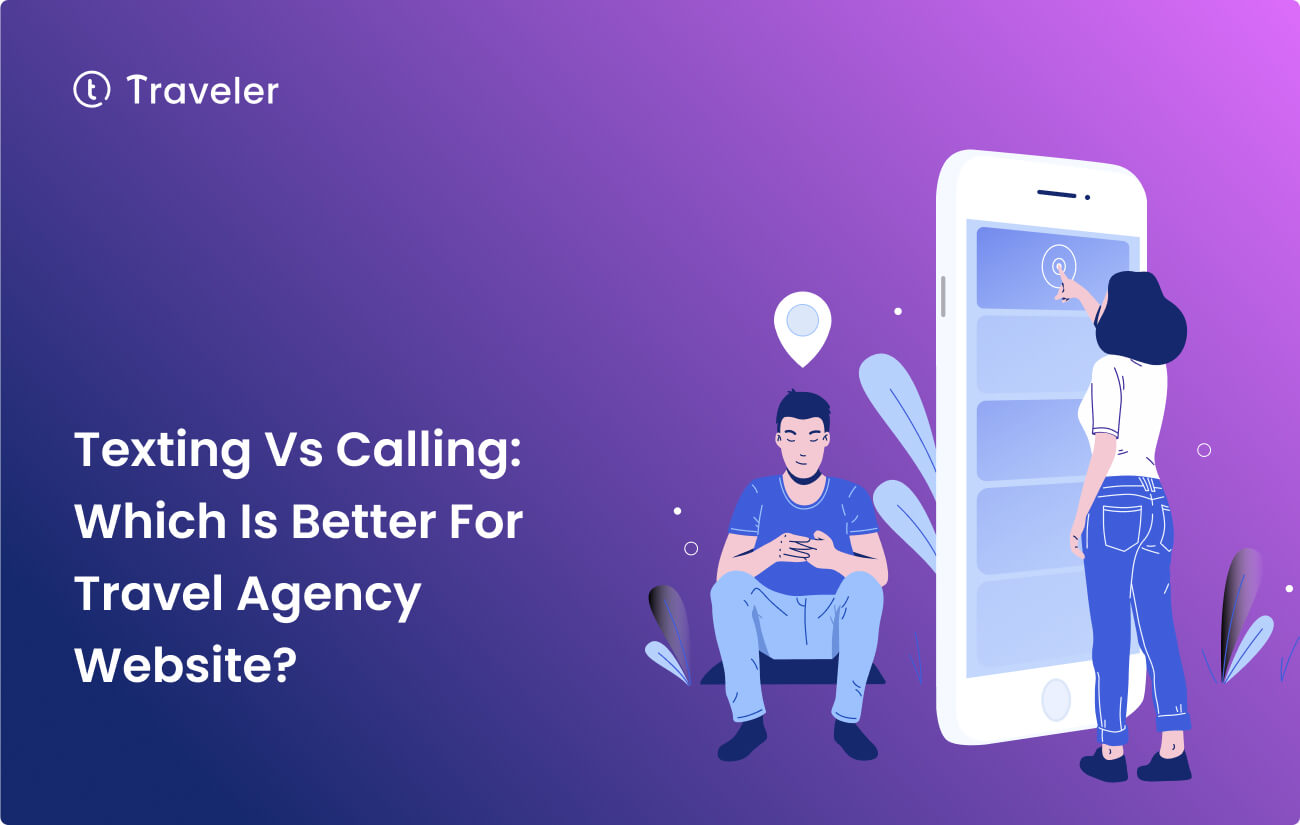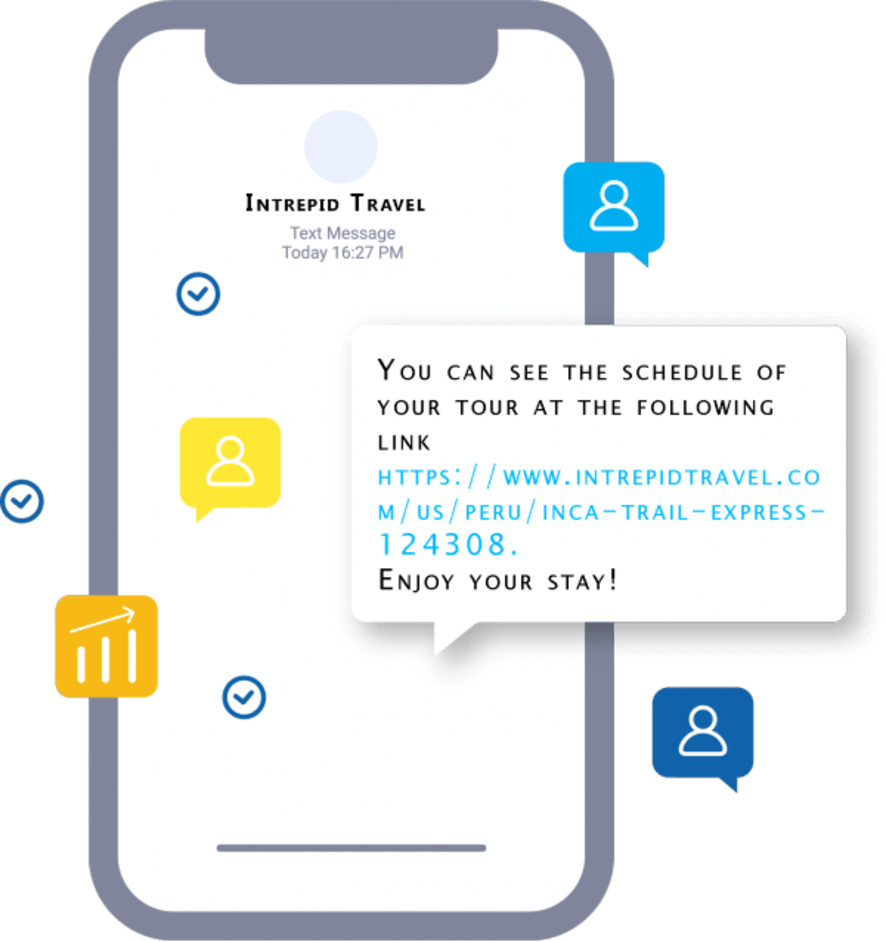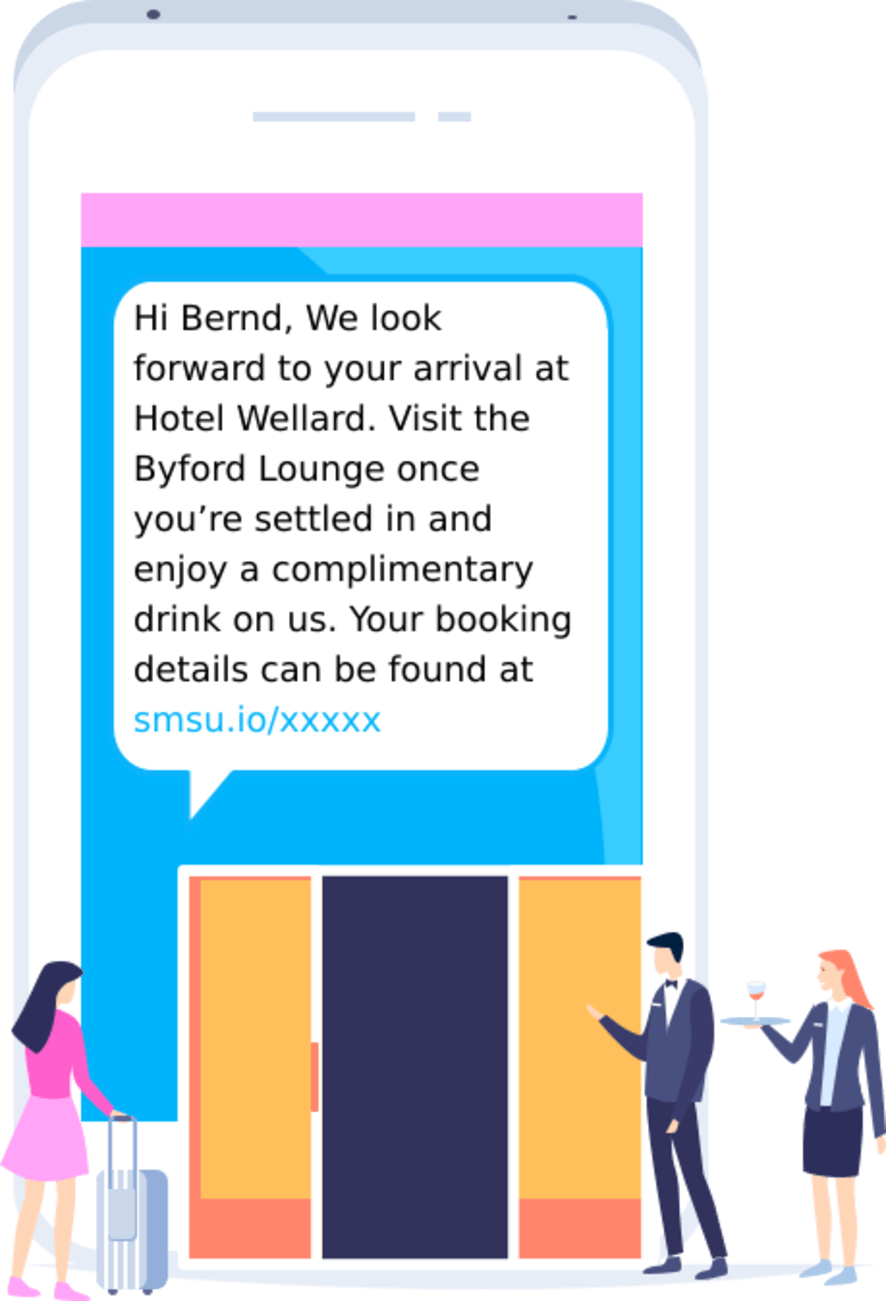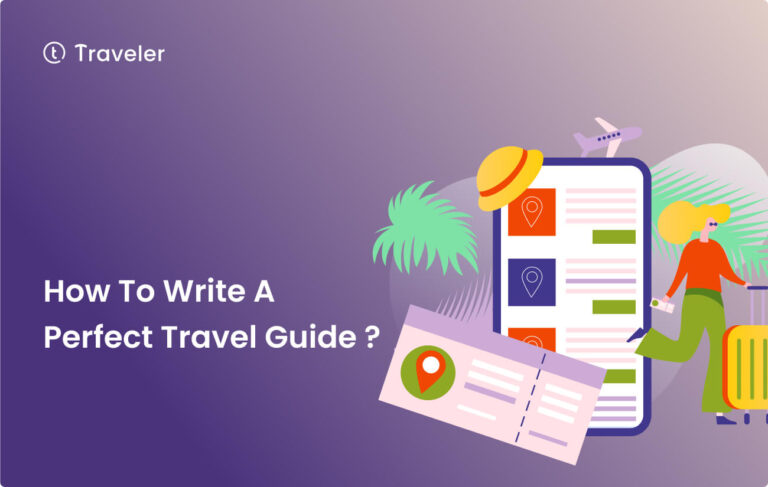Texting vs Calling: Which is Better for travel agency website?

Table of Contents
In this digital age, communication has transformed immensely, offering us various ways to connect with our customers. But the question remains – which method is the most effective for a travel agency website?
In today’s post, we’ll delve into a detailed comparison between texting and calling. We’ll explore the advantages, disadvantages, and potential impacts of both methods in the context of a travel agency website. Whether you’re a seasoned travel agency owner or just starting your digital journey, this post will provide valuable insights to help you make an informed decision.
Pros and Cons of Texting
Benefits of texting for travel agencies

One of the most significant advantages of texting is its convenience. Text messages are quick to send and receive, making them an efficient way for travel agencies to communicate with clients.
Whether it’s sending booking confirmations, answering queries, or providing updates, texting allows for instant communication. This is especially useful when dealing with time-sensitive issues related to travel arrangements.
Text messages have an impressive open rate – as high as 98%, according to Gartner. This far exceeds the open rate of emails, making texting a more reliable means of communication. Furthermore, people typically respond to text messages faster than they do to emails. This can lead to quicker resolutions and higher customer satisfaction.
Texting isn’t just about words anymore. Modern platforms allow travel agencies to send attachments, links, maps, and even pictures to their clients. This capability can be particularly useful in the travel industry.
For instance, agencies can instantly send travel itineraries, booking confirmations, or even pictures of travel destinations. This not only makes the process more efficient but also enhances the customer experience by providing valuable information at their fingertips.
Drawbacks of texting for travel agencies
Texting is great for quick updates or simple questions, but it can fall short when it comes to conveying more complex information.
When planning and coordinating travel, there can be many intricate details to discuss. Explaining these over text can be challenging and time-consuming, and important nuances may get lost in translation.
One of the main limitations of text-based communication is the absence of tone and non-verbal cues. This can sometimes lead to misinterpretation of the message, especially in situations where emotions or sensitive matters are involved.
Without the inflections, pauses, and emphasis that come with verbal communication, the recipient may misinterpret the intended meaning, which could potentially lead to misunderstandings and confusion.
Finally, texting relies heavily on the recipient having a functioning mobile device and a stable internet connection. While this is generally not an issue in most developed regions, it can be a challenge in remote areas or countries with less reliable internet infrastructure. In these cases, calling might be a more reliable option.
Pros and Cons of Calling
Benefits of calling for travel agencies

One of the key advantages of calling is that it allows for personalized and immediate assistance. Travelers often have unique concerns and questions that require tailored responses.
With a phone call, travel agents can provide real-time support, answer specific queries, and even assist with complex issues like last-minute changes or emergencies. This level of personalized service can significantly enhance customer satisfaction and loyalty.
Unlike texting, calling allows travel agents to convey detailed information efficiently and effectively. They can explain complex travel packages, discuss multiple options, and answer specific queries—all in one conversation.
This not only saves time but also ensures customers fully understand their travel arrangements, reducing the likelihood of confusion or misunderstandings later on.
Phone calls offer a more personal interaction compared to text messages. The human voice brings a level of warmth and connection that text simply can’t match.
This can help travel agencies build rapport and trust with their customers, which is crucial in the competitive travel industry. By hearing their agent’s voice, customers can feel more confident in their decision to trust the agency with their travel plans.
Drawbacks of calling for travel agencies
Phone calls are inherently more time-consuming than text messages. Each call can take several minutes or even longer, depending on the complexity of the customer’s request.
During peak periods, this can lead to long wait times and frustrated customers. Additionally, agents may not be able to assist other clients while they’re on a call, which could potentially affect productivity.
Travel agencies often have clients spread across different time zones. Coordinating calls can be challenging and inconvenient, both for the agents and the customers.
There’s always a risk of calling too early or too late, which can lead to a poor customer experience. Additionally, customers might prefer to communicate asynchronously due to their own busy schedules.
Even with the best intentions, calls can be missed. Whether the customer is unable to answer, or the agent is tied up with another client, missed calls are a common occurrence. While voicemails can be left, they add an extra step for the customer and can delay the resolution of their query.
Practical Tips for Choosing Between Texting and Calling

For quick updates, confirmations, or simple questions, texting can be a great choice. It’s fast, convenient, and doesn’t require immediate attention from the recipient. However, for complex discussions, urgent matters, or sensitive issues, a phone call is often more appropriate.
Urgent or complicated matters often warrant a phone call. The immediacy of a call ensures that important details aren’t missed and complex issues are handled effectively. On the other hand, for less urgent matters or when the information is straightforward, a text might suffice.
Ensure your team is well-versed in managing both calls and texts. They should be able to switch between the two seamlessly, depending on the situation. This flexibility will enhance your customer service and ensure all client interactions are handled professionally.
Conclusion
In conclusion, both texting and calling have their unique strengths for travel agencies. Texting offers convenience and speed for simple communication, while calling provides a personal touch for complex discussions. The key is to balance these methods based on the nature of the inquiry and the customer’s preferences. Training staff to handle both efficiently is vital. Ultimately, whether through a text or call, every interaction is an opportunity to make your clients feel valued and cared for, which is the hallmark of successful travel agencies.


